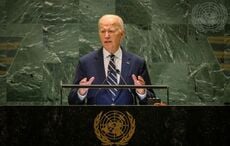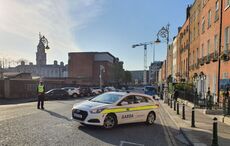Feared Loyalist killer turned peacekeeper Gusty Spence has died in Belfast at the age of 78.
A feared killer after he helped to re-invent the Ulster Volunteer Force in the 1960s, Spence went on to renounce violence.
He played a role in the Peace Process that finally brought an end to violence in Northern Ireland and was the public voice who proclaimed a Loyalist ceasefire in 1994.
Spence was twice charged with murder, was sentenced to life imprisonment for killing a Catholic teenager, established relations with Republic paramilitaries in prison and escaped from jail when given six hours parole to attend his daughter’s wedding.
____________________________________
READ MORE:
The men behind the final Loyalist ceasefire
Calm restored in East Belfast after riots
____________________________________
He became interested in politics whilst serving 18 years in jail, persuaded other prisoners to do likewise and was a key player alongside David Ervine and Billy Hutchinson in the Progressive Unionist Party.
A former military policeman, Spence, who died after a long illness, came from a well known loyalist family in East Belfast.
His father was a member of the original UVF which was disbanded at the end of the First World War after it lost thousands of men on the battlefield of the Somme.
Gusty Spence was the driving force behind the renewal of the UVF in 1966 when it declared war on the IRA and targeted Catholics.
When 28-year-old John Scullion became the first victim of the Troubles in June 1966 after he was shot by the UVF in the nationalist Falls Road area, Spence was one of three men charged with his murder but all charges were dropped.
He was convicted later that month when 18-year-old Peter Ward was shot dead by the UVF. Spence was sentenced to life in prison but escaped in July 1972 while on six hours parole to attend his daughter’s wedding.
Spence spent four months on the run during which time he re-organized the UVF and appeared on television as the outfit’s commanding officer.
He stayed in prison until Christmas 1984 during which time he developed a profound interest in politics and played a key role in the combined Loyalist ceasefire of 1994.
In October 1994 he announced that the main loyalist paramilitary groups, the UVF and the Ulster Defence Association, were declaring ceasefires.
Involved in talks during the peace process, Spence offered his ‘abject and true remorse’ to the loved ones of all the innocent victims of the Troubles.
In 2007, it was Spence who informed the world that all UVF weapons had been put beyond use.




Comments